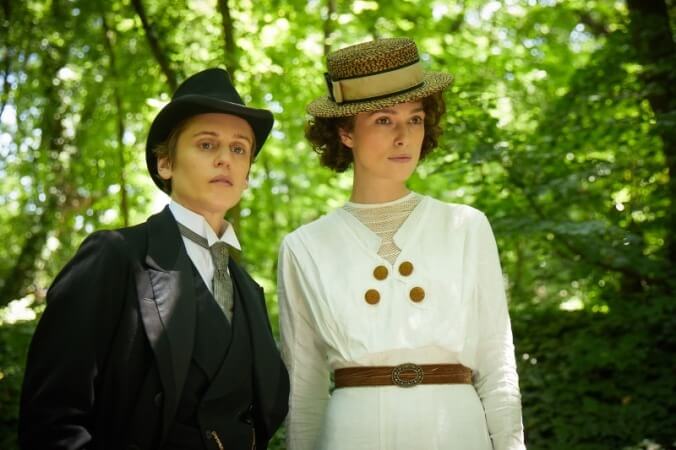Keira Knightley’s charms fail to save the timely, tepid biopic Colette

The life of French novelist Sidonie-Gabrielle Colette, better known as simply Colette, feels tailor-made for a biopic in 2018. Her first four novels—the Claudine series, about a French girl’s coming-of-age—were released at the turn of the century to acclaim and mild scandal, especially among the Parisian elite. Yet Colette couldn’t reap the rewards because her work was published under “Willy,” the nom de plume of her husband, the publisher and all-around rake Henry Gauthier-Villars. When she wasn’t ghostwriting, Colette took up pantomime and stage work, and had numerous affairs with women. Colette eventually separated from Willy, published many novels under her own name, successfully sued for Claudine’s co-authorship, and was nominated for the Nobel Prize in Literature. Her personal and professional triumph under a socially oppressive patriarchal environment feels primed for the current feminist-conscious culture.
Director Wash Westmoreland intimately understands this, and his biopic Colette, which spans the novelist’s marriage to Willy, takes that ball and runs with it. (The film’s tagline is “History is about to change.”) Keira Knightley plays the title character, and she imbues the country-girl-turned-artist with charm and confidence. Molding Colette into a relatable figure, Knightley plays up her unpretentious disposition among other Parisian intellectuals, and Westmoreland constantly signals to the audience that her actions are well ahead of their time. While that’s certainly true to an extent, Colette too frequently coasts on its timeliness, preferring catharsis to nuance. Westmoreland never lets anyone forget on which side of history his film stands, and that extends to the characterization of Willy (Dominic West), whose over-the-top narcissistic arrogance might be an accurate representation but still scans as a moralist caricature in the narrative context of Colette. Although there’s something to be said for shallow pleasures, the kind that confirm pre-existing beliefs in a satisfying way, they tend to be more potent when a film has some respect for an audience’s emotional intelligence. Colette, with its easy villains and near-constant contrast of the righteous and the unrighteous, exhibits very little.
Part of the problem lies with Colette’s respectable period-biopic veneer, which belies the film’s racy substance. It’s presumably Westmoreland’s intention to juxtapose Colette’s risqué behavior with early-20th-century haute culture, which is reflected in Colette’s divided tone, but the film springs to life whenever it unabashedly indulges in its smutty side. Colette’s best sequence features an affair between Colette and Southern belle Georgie Raoul-Duval (Eleanor Tomlinson, sporting a dreadful “I do declare” accent). After Willy becomes jealous, he embarks on his own surreptitious liaison with Georgie behind Colette’s back. She eventually discovers his ruse and channels her frustration into a Claudine novel, which takes potshots at Willy and outs Georgie. It’s a fun, sexy digression rooted in competing desires and complex interiority, and it’s also decidedly not “proper,” making it stand out in an otherwise by-the-numbers biopic. Other quasi-camp elements don’t fit within Colette’s framework, including Thomas Adés’ melodramatic score and some high-octane eye-rolling dialogue (it’s difficult to clock the sincerity of “You have beautiful teeth” as a come-on), but the film reaches for something more when Westmoreland focuses on Colette’s fluid sexuality as opposed to her prolonged low-burn conflict with Willy over authorship and control. Colette is forgettable at best and tepid #Resistance fare at worst, but in its best moments, it glimmers with potential, just like the early efforts of the real-life Colette.